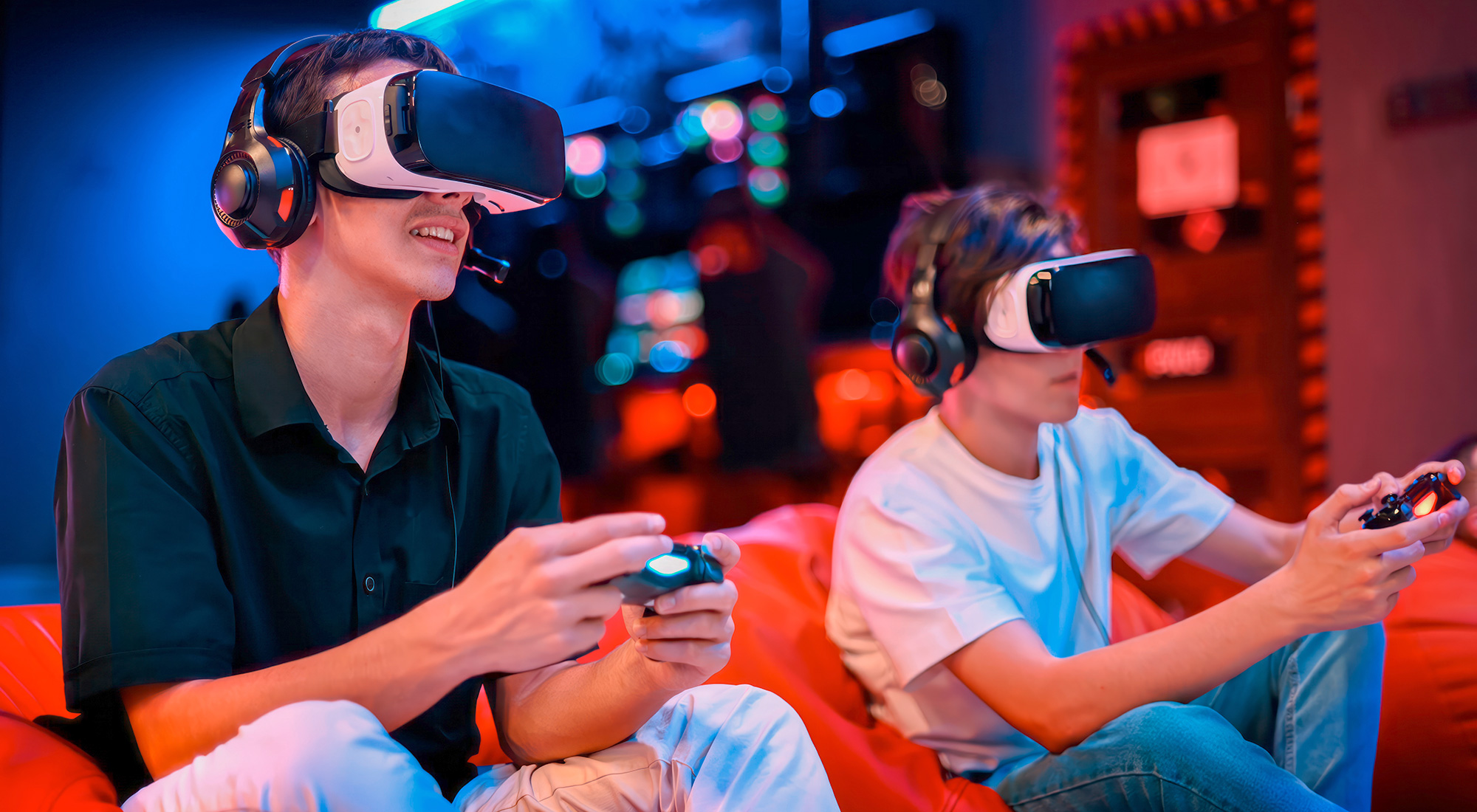CPOpen: Your Gateway to Current Affairs
Stay updated with the latest trends and insights across various topics.
When Reality Gets a Makeover: The VR Revolution
Dive into the VR revolution and discover how virtual reality is transforming our world. Get ready for a reality makeover!
Exploring the Future: How VR is Transforming Our Daily Lives
Virtual Reality (VR) is rapidly becoming an integral part of our daily lives, transforming the way we interact with technology and each other. From gaming and entertainment to education and remote work, VR creates immersive experiences that are changing our expectations of digital content. For instance, VR applications in education allow students to explore historical sites or conduct science experiments in a virtual lab, providing hands-on learning experiences that were previously unimaginable. This innovative technology is not just about escapism; it's about enhancing real-world tasks and making learning more engaging.
Furthermore, the impact of VR technology extends to mental health and therapy. Virtual Reality therapy has emerged as a powerful tool for treating conditions like PTSD and anxiety, offering patients a safe space to confront their fears in a controlled environment. As developers continue to improve VR hardware and software, we can expect to see further advancements in how it is integrated into our daily routines. In the coming years, VR will likely evolve into a multifaceted tool that not only entertains but also educates and heals, reshaping the fabric of our everyday experiences.

The Science Behind Virtual Reality: Understanding the Technology that Changes Everything
Virtual Reality (VR) is a groundbreaking technology that immerses users in a computer-generated environment, mimicking the physical world through a combination of hardware and software. At its core, VR relies on sophisticated equipment such as headsets, controllers, and sensors that work together to create an engaging experience. The science behind virtual reality is rooted in the principles of human perception, as the technology manipulates visual, auditory, and tactile stimuli to forge a realistic simulation. While VR has been widely recognized for its applications in gaming and entertainment, its potential extends to various fields, including education, healthcare, and training simulations.
The effectiveness of VR in altering users' experiences stems from its ability to cater to our senses. For instance, VR systems often utilize a combination of 360-degree visuals, spatial audio, and haptic feedback to reinforce the illusion of being present in another environment. As users interact with virtual elements, their brains interpret these stimuli as real, leading to profound psychological effects. This phenomenon is known as presence, which describes the sensation of being 'there' in the virtual realm. As research continues to explore the implications of virtual reality, it becomes increasingly clear that the technology that changes everything goes beyond mere entertainment; it possesses the power to fundamentally reshape how we learn, train, and interact with the world around us.
Is VR the Next Big Thing in Entertainment and Education?
Virtual Reality (VR) has rapidly evolved, positioning itself as a potentially transformative force in both entertainment and education. With the introduction of advanced technology and affordable VR headsets, a new era of immersive experiences is upon us. In entertainment, VR enables users to engage in unparalleled and interactive environments, making gaming, movies, and live events feel remarkably real. As consumers continue to crave more engaging content, it seems likely that VR will be the next big thing, reshaping how we interact with our favorite media.
In the realm of education, VR stands to revolutionize traditional learning methods, offering interactive simulations that enhance understanding and retention. Imagine students donning VR headsets to explore ancient civilizations, conduct virtual science experiments, or practice critical skills in lifelike scenarios. This level of engagement not only makes learning more enjoyable but also provides opportunities for hands-on experience that were previously impossible. As educational institutions begin to embrace this technology, it reinforces the idea that VR could indeed be the next big thing in shaping the future of learning.